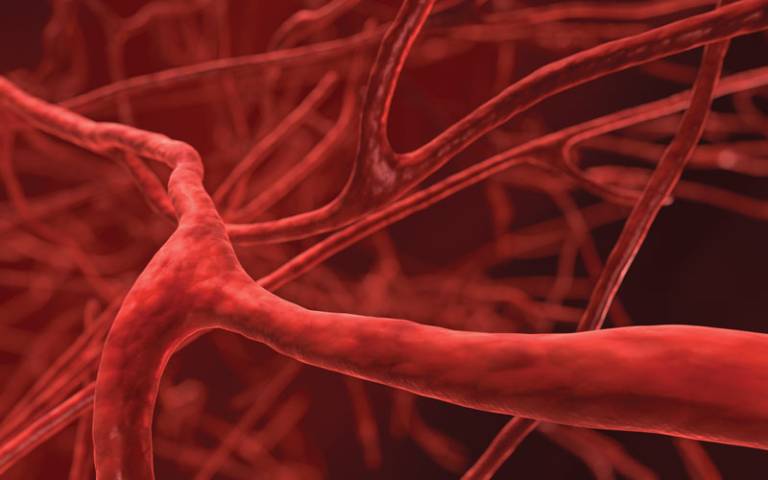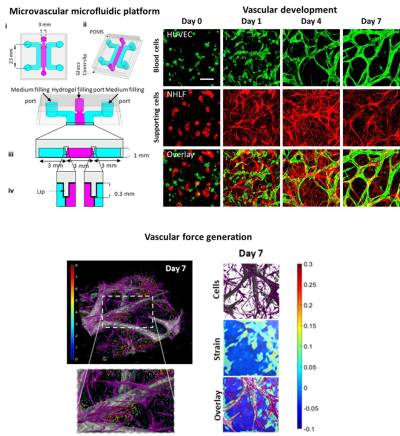How our blood vessels form: a new study reveals a more complex picture
11 August 2023
Professor Emad Moeendarbary of UCL Mechanical Engineering is the senior author on a paper released today that has shed new light on how our blood vessels form.

Published today in the interdisciplinary journal Science Advances, the groundbreaking paper has paved the way to advancements in developmental biology, regenerative medicine and drug delivery fields.
Scientists have traditionally believed the formation of blood vessels to be largely influenced by chemical signals and external forces. However, this new study has revealed a much more complex picture for this process (known as vascular morphogenesis).

Investigating mechanics of microvascular network development using integrated microfluid and 3D force measurement technologies.
The study was a partnership between scientists from UCL, Massachusetts Institute of Technology (MIT) and the Francis Crick Institute. They used cutting-edge tools like microfluidic organs-on-chips platforms, Atomic Force Microscopy and 3D Traction Force Microscopy.
The researchers discovered that when blood vessels take shape, the surrounding tissue becomes stiffer, with the most stable blood vessels resulting in the stiffest tissues. This indicates a crucial relationship between tissue stiffness and healthy blood vessels.
The study highlighted a bio-mechanical interaction between the cells that line blood vessels (endothelial cells) and supporting cells (stromal fibroblasts). This surprising discovery showed that this interaction is necessary for the tissue to stiffen and allow blood vessels to form properly.
The researchers also found that when they deleted a protein called YAP1 from the stromal fibroblasts of mice embryos, the embryos experienced fatal bleeding and had softer tissue and different blood vessels in the head region.
These findings challenge the previous understanding that endothelial cells were the only drivers of blood vessel formation, as this study has made it clear that cell interactions are also a necessary factor for the function of our blood vessels.
This pioneering study enhances our understanding of human development and will assist any future research focusing on regenerative medicine or drug delivery systems.
Professor Emad Moeendarbary (UCL Mechanical Engineering), senior author of the study, said:
““The fruitful completion of this deeply interdisciplinary and collaborative research, after an intense eight-year endeavour, is extraordinarily rewarding. The task of deciphering the intricacies of blood vessel formation necessitated a concerted effort from a varied team of mechanical engineers, physicists and biologists. This undertaking is a compelling illustration of the power of cooperative work. I am confident that the knowledge we've acquired will significantly enrich our understanding of vascular biology and catalyse the creation of effective therapeutics.”
Related content
Image
- Credit: spanteldotru on iStock
 Close
Close

